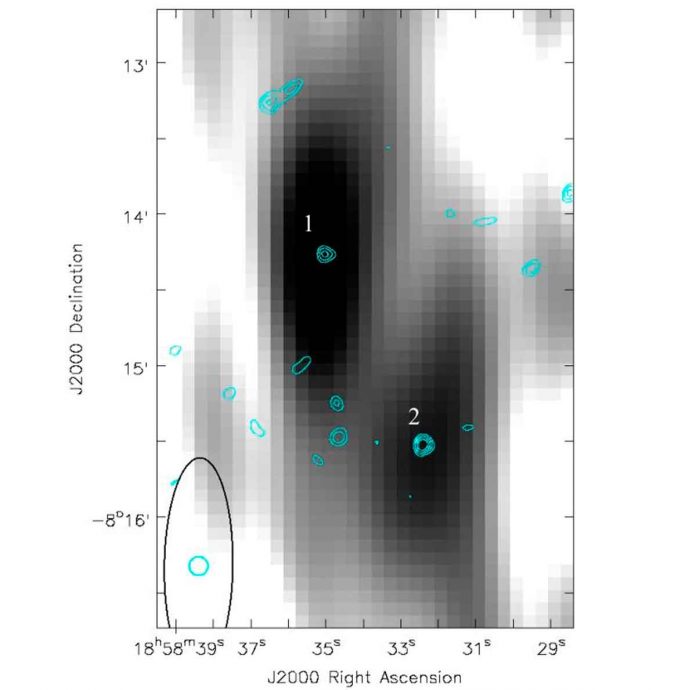Astronomers have conducted a radio monitoring campaign of the outburst of a recently discovered X-ray binary known as Swift J1858.6−0814. They have used the MeerKAT radio telescope and the Arcminute Microkelvin Imager–Large Array (AMI-LA). The study shed more light into the nature of this source.
X-ray binaries (XRBs) includes a normal star or a white dwarf transferring mass onto a compact neutron star or a black hole. Most black hole XRBs and some neutron star XRBs show transient events which are characterized by outbursts in the X-ray band.
Swift J1858.6−0814 is a neutron star XRB that was first identified by NASA’s Swift spacecraft during an outburst. The system is situated some 41,700 light years away and its orbital period is estimated to be approximately 0.83 days.
University of Oxford scientists wanted to understand the nature and behaviour of J1858. They have commenced radio observations of this source. The MeerKAT observations were made at a central frequency of 1.28 GHz with a bandwidth of 856 MHz split into 4,096 channels. The observations were made at 15.5 GHz with a bandwidth of 5 GHz, when it comes to AMI-LA.
Scientists observed self-absorbed radio emission from Swift J1858.6−0814 and recorded two radio flares, as a result of the monitoring campaign. This is consistent with a quasi-steady compact jet as expected in the hard X-ray spectral state. The radio light curves of the source showcase little significant long-term variability.
Scientists managed to determine the magnetic field and minimum energy of J1858’s jet, by analyzing one of the flares. The magnetic field was found to be at a level of 2.0 G and the energy was estimated to be around 50 undecillion erg. Scientists added that the emission region size was measured to be some 100 million kilometers.

